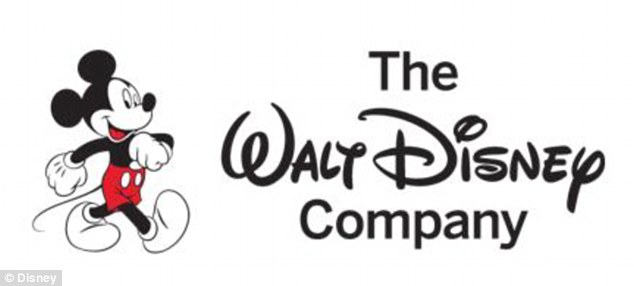The difference between a trademark and a copyright mainly boils down to usage. One is used as a trademark when it's used to identify a product as being produced by, or endorsed by, a specific entity. When you look at the tag of a T-shirt and see this:
...that would be an example of Mickey Mouse being used as a trademark. It identifies the producer of the shirt as being Disney, or it being an shirt authorized by Disney. The drawing of Mickey can be both copyrighted as well as used as a trademark. But it's important to note that simply trying to sell copies of the Mickey seen here would be a copyright violation today, but it wouldn't necessarily be a trademark violation. In order to be found as a trademark violation, Disney would have to file suit against a possible infringer and then demonstrate that the use of the Mickey image would likely create confusion by enough of the public such that they would reasonably think that the drawing was produced or authorized by TWDC.
It's also important to note that the US Supreme Court has ruled (Dastar Corp v Twentieth Century Fox Film Corp) that a trademark cannot be used as an IP protection end-run around copyright expiration. They noted that it was illogical that Congress simultaneously expressly has set fixed limits on how long a work may be copyrighted AND created trademark law that would leave open a wide loophole for works creators to be given permanent protection of the same works by simply trademarking elements found within them.
So what would losing copyright protection mean for Steamboat Willie and Mickey? Well if it falls into the public domain:
- People besides Disney could make and sell copies of the cartoon.
- You could broadcast on TV the cartoon or post it to
Youtube without paying a royalty or worrying about a take-down notice.
- You could copy the plot and script to make your own Steamboat Willie cartoon.
- You could make and sell artwork (or other derivative works) containing the same rendering of Mickey found in Steamboat Willie. However, to protect yourself from possible trademark infringement claims, would would need to be sure to explicitly state that the works do not originate from Disney nor are they authorized by then.
It's also important to note that when it comes to copyright and trademark law, there aren't a lot of certainties. The only way to specifically answer a given question is for a lawsuit to be filed and the competing side argue their positions before a court who then will apply the principles set down in the applicable law.
It's also worth noting that other companies have had to deal with the same thing that Disney is now facing. The estates of Conan Doyle (Sherlock Holmes) and Edgar Rice Burroughs (Tarzan and John Carter) have tried to use trademarks to defend early works containing these famous characters from being in the public domain. So far, they haven't had much luck of keeping their genies in the bottles. A US court ruled in 2013 that Holmes was in the public domain here,
and this story notes similar results in other countries. The Tarzan suit didn't make it all the way to a judgement and they settled with the comic book maker and decided to join forces with them, but legal analysts have said that if the defendant had decided to fight it to conclusion Burrough's estate
likely would have lost.
